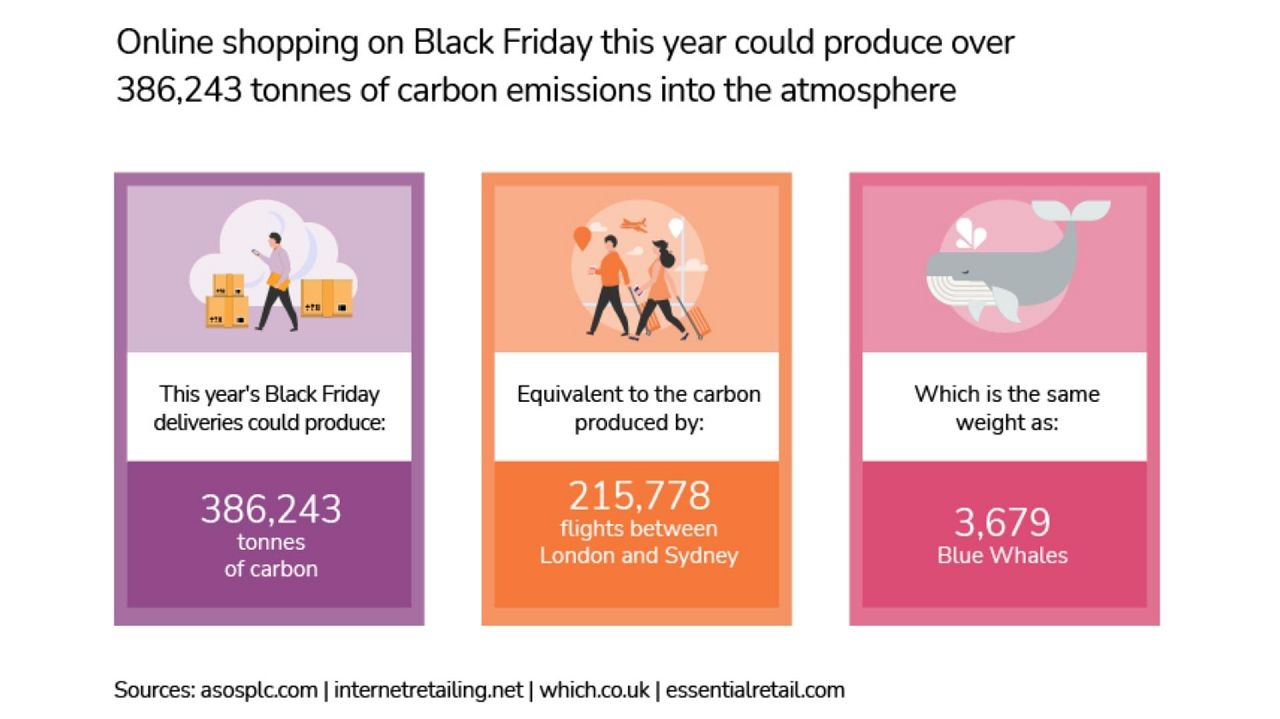Tempting though these one-day deals may be, their environmental impact could be putting people off of Black Friday shopping.
Black Friday is one of the busiest shopping days of the year. In 2021, 88 million consumers shopped online while in 2020 sales hit a record high of $9 billion (€8.6 billion).
 ADVERTISEMENT
ADVERTISEMENT
 ADVERTISEMENT
ADVERTISEMENT
The day, famous for ridiculous discounts, follows Thanksgiving and is an effort by retailers to encourage people to start buying for the rapidly approaching festive season. It started in America and heavily reduced items often see websites crash and physical violence as shoppers rush to take advantage.
As the world becomes more conscious of overconsumption and moves towards buying less, a handful of brands are opting out of Black Friday sales altogether.
Could we be encouraging overproduction?
Other groups are campaigning for customers to reject consumerism on its most holy of days, too.
“Black Friday represents a sore spot in an industry that runs on overproduction,” says Cary Somers, founder of Fashion Revolution.
The group claim that “hyper discount culture” fuels brands to produce too much stock as they know they will be able to shift it once the holiday season comes around. Generally, companies plan to produce too much stock in the hope of capturing every possible customer.
They then get rid of whatever doesn’t sell by trashing it, donating it, or selling it at a massively reduced price.
And the emissions created by Black Friday sales are high too. Research from wastemanaged.co.uk estimates this year's shopping bonanza will generate 429,000 metric tonnes of greenhouse gas emissions from product deliveries alone.
That is the equivalent of 435 return flights between London and New York.
The site adds that 80 per cent of purchases from Black Friday sales end up in landfill sites, are incinerated or are recycled incorrectly. This results in a 25 per cent increase in waste in the US between Black Friday and the New Year.
Attitudes are starting to change
Sales this Black Friday are expected to drop amid the cost of living crisis. A 10 per cent reduction in purchases would result in an 11 per cent reduction in carbon emissions, experts say. That's the equivalent of 215 return flights from London to Sydney.
A survey carried out by money.co.uk last year found that many consumers are thinking more about the environment when making online purchases. Nearly one in four people in the UK now factor in the carbon impact of what they buy online - an increase of 88 per cent when compared to the previous year.
GenZ was the group most willing to do things differently, reporting that they would spend an average of €10.54 extra to offset the carbon produced by their online purchases.
"With more UK shoppers considering the environmental impact of their online delivery purchases than last year, it is clear that consumers are stepping up to the challenge of making their online shopping habits more eco-friendly," says Salman Haqqi, personal finance expert at money.co.uk.
He explains that a number of delivery companies, including Royal Mail and UPS have already made changes to become more environmentally conscious such as the introduction of electric vehicles.
"Suggesting that consumers' attitudes are potentially altering the way businesses operate," Haqqi adds, "especially as our research suggests that 60.45 per cent of UK shoppers would be less willing to make a purchase if an online retailer uses a particular delivery company.”











